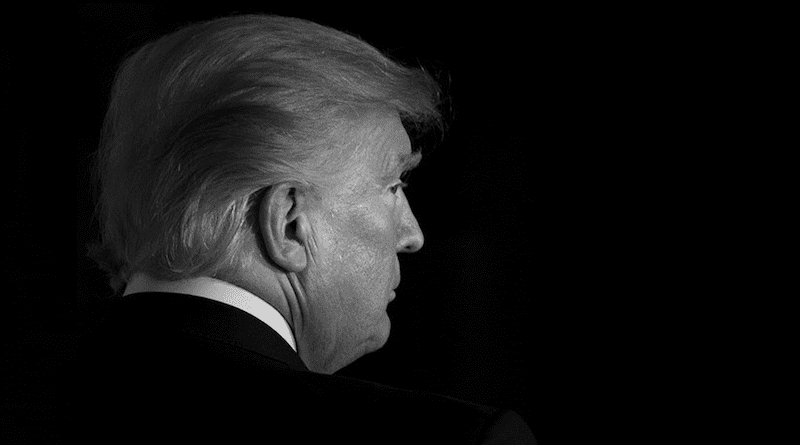How Trump Threatens The Rule Of Law In The US – OpEd
By Greg Pence
A year before the US election, confidential government documents on Trump’s property sparked controversy. Prosecutors accused him of hiding documents and federal crimes. He faces ten years in prison if proven guilty before the election. They can also stop him from running by prosecuting him. But the verdict may come after the election due to the lengthy judicial process. If Trump wins and is guilty, he will be a security threat as president. The worry is that he will pardon himself with his presidential power. The Constitution does not cover this conflict. He will be the first president to exonerate himself if he does this. This could challenge the rule of law and create a dangerous precedent, as the judicial system follows previous practices. It could also let future presidents commit crimes and pardon themselves. To avoid this, prosecutors should either finalize Trump’s case before the election or the Supreme Court should reject this right as unconstitutional.
The founders of this country envisioned Rule of Law based on Constitution two centuries ago. At that time, Europe was ruled by monarchies and most countries had kings. The authors of the Constitution saw the king as a tyrant and an anti-pluralist, so they avoided relying on a person and chose the Rule of Law for the American political system. The separation and independence of three branches of government, along with transparency and accountability of officials, established the principle of obedience to the law and its rule in this country’s political institutions. Judges and courts in the US have much power. They can suspend laws that they judge against the Constitution. The law stays suspended until the Supreme Court, which adapts ordinary laws to the Constitution, decides its validity or contradiction. Many analysts credit US’s economic, political, scientific, and military growth in two centuries to the Rule of Law and judicial independence in this country.
Trump’s presence in the American political structure is a break from this two-hundred-year-old process. Not only can the recent allegations against him be a serious challenge to the American constitution, but he had also created serious challenges for the executive branch before. The claim of fraud in the 2021 presidential election was one of these cases. When he could not prove fraud, he pressured his vice president Mike Pence to stop confirming the election results in the Senate. In practice, Pence did not have the authority to fulfill Trump’s request and eventually, Trump’s defeat was confirmed by the Senate. But Trump, in an unexpected move, incited his supporters to attack Congress, which is considered the heart of the legislative branch of this country. Inciting insurrection by a president and storming Congress was a turning point in American history. Although Trump was not tried and punished thanks to Republican Party members, he inflicted a serious blow to the symbol of the rule of law in this country.
Confidential government documents were found in Trump’s Mar-a-Lago villa where he and his wife live after his presidency. This is another challenge to the rule of law and its inviolability in the US. Some think that if Trump becomes the President again, he can pardon himself and overturn his verdict. This seems wrong. The president has the pardon power to grant it to Americans in need and judgment. Pardons are granted by a person or institution that can exempt someone from punishment. They act as a judge who pardons the criminal. But legally, one cannot be his own judge. This is like a sentenced criminal judging and pardoning himself. Such a pardon harms the rule of law and the court’s verdict in this country.
This action may weaken the Supreme Court’s constitutional interpretation role. Laws are not retroactive, so Trump’s pardon would stand even if later ruled unconstitutional. Trump would pardon himself no matter what. Also, in legal-based political systems, this could lead to more law evasion or weakening by corrupt politicians.
There are two possible ways to prevent such a dangerous precedent from being established in US’s political and legal structures. The first way is to conclude Trump’s trial and sentencing process before the 2024 election and convict him on this charge. However, this may not be feasible given the complexity of Trump’s case and his potential obstruction of justice. The second way is for Congress to pass a law that prohibits the president from pardoning himself and, if Trump challenges this law in court, for the Supreme Court to rule according to the Constitution.

